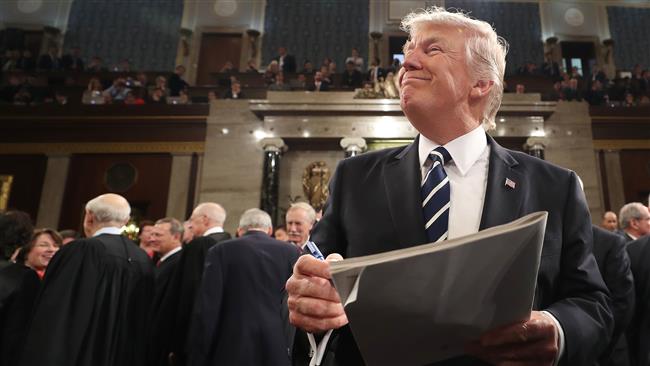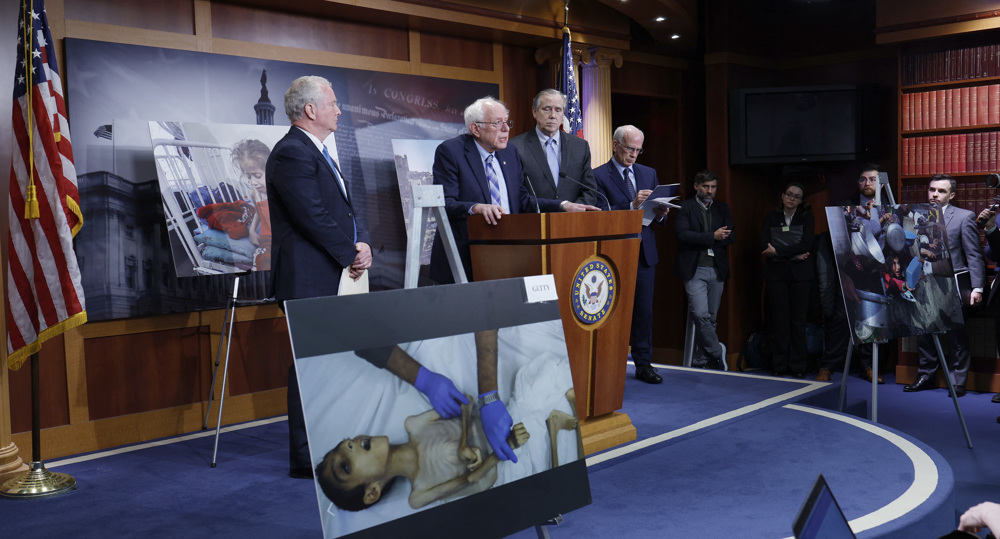New US travel ban targets terrorists, not Muslims: Homeland Security
The US government has defended President Donald Trump’s revised entry ban against people from several Muslim countries, with Homeland Security Secretary John Kelly claiming that it only targets terror suspects.
Kelly made the remark in an interview with CNN on Monday, shortly after Trump authorized a “watered down” version of the initial ban that excludes Iraq but still prevents citizens of Iran, Syria, Libya, Yemen, Somalia and Sudan from obtaining an American visa.
“Three of the six (countries in the travel ban) now are designated as terrorism supporters,” Kelly claimed. “We can't rely on those governments ... It's not a Muslim ban ... there are 51 overwhelmingly Muslim countries,” he said.
Upon signing the original directive in late January, Trump asserted that the ban sought to keep out “radical Islamic terrorists.”

Secretary Kelly noted that there were 14 other Muslim nations that needed to follow Iraq’s example and step up vetting processes to ensure Washington that terror suspects won’t get the chance to fly over to the US.
Department of Homeland Security (DHS) officials have previously cited the Pentagon’s concern over Iraq’s role in the fight against terror groups as the main reason for the country’s exemption. Despite dropping the Arab state’s name from the list, however, the new ban still calls for “additional scrutiny” of Iraqi citizens.
Read More:
Following the announcement of the original executive order, Iraqi Prime Minister Haider al-Abadi had threatened Washington with retaliatory measures. The US currently has over 5,000 military personnel in Iraq.
Washington has refused to explain why countries like Iran and Syria, which have played a key role in eliminating terrorism, are still included on the list.

Upon announcing the new ban, Attorney General Jeff Sessions said the executive order “seeks to protect the American people” and that the US has the right to keep out “those who would do us harm.”
Read More:
The visa ban, which goes into effect on March 16, will last for a period of 90 days. Unlike the original measure, the new one has lifted an indefinite suspension of refugee admissions from Syria, upholding a 120-day halt of all admissions instead.
White House Press Secretary Sean Spicer told reporters on Monday afternoon that the new plan “was extremely well received.”
Tougher immigration crackdown
Elsewhere in his remarks, Kelly confirmed unofficial reports that the Trump administration was considering separating illegal immigrant children from their parents at border.
“Yes I'm considering (that), in order to deter more movement along this terribly dangerous network,” he said, adding that the children would be handed over to the Health and Human Services Department until they are put in “foster care” or linked up with relatives in the US.
Read More:
Sources within the DHS told Reuters last week that the department was exploring options to discourage women and children from sneaking together into the US.
The Trump administration has also allowed the DHS to deport or prosecute Central American parents who facilitate the smuggling of their children into America.
The Republican president has previously pledged to deport millions of undocumented immigrants.
VIDEO | IAEA adopts anti-Iran resolution tabled by E3
VIDEO | Iran's president urges Pope to help end Israel's onslaught in Gaza
Iran's senior legal official: ICC arrest warrant for Netanyahu ‘great victory'
Nov. 21: ‘Axis of Resistance’ operations against Israeli occupation
VIDEO | Israeli forces storm West Bank’s Jenin again, target civilians
Iran activates advanced centrifuges after IAEA's 'unjust' resolution
VIDEO | Press TV's news headlines
Iran FM: Response to Israeli aggression 'inevitable'










 This makes it easy to access the Press TV website
This makes it easy to access the Press TV website